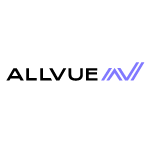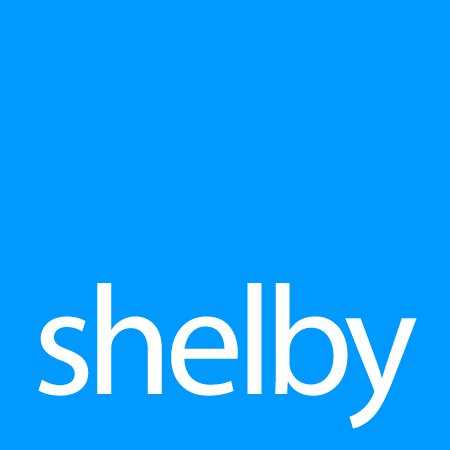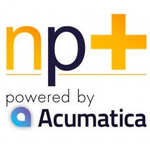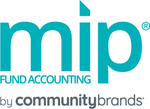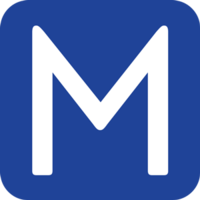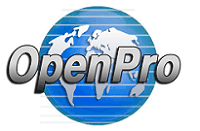What Is Fund Accounting Software?
Governmental entities, educational institutions, and non-profits use fund accounting software as a specialized tool to manage their financial operations. It is made to satisfy the particular accounting requirements of these kinds of organizations, which frequently have a number of finances, grants, and restricted donations to manage. The capacity to track money independently is one of the main characteristics of fund accounting software.
This makes it simpler to track and report on each fund's unique financial performance because each fund has its own set of accounts and financial statements. For non-profit organizations, who have to show donors and stakeholders that they are accountable and transparent, this is essential. Additionally, firms can adhere to intricate accounting rules and guidelines like GAAP (Generally Accepted Accounting Principles) and FASB (Financial Accounting Standards Board) with the use of fund accounting software.
Additionally, it makes it simple to track revenues and expenses by project or program, giving clear insights into how money is being managed and spent. Additionally, fund accounting software has strong reporting features that make it simple for organizations to create donor, budget, and financial statement reports. This enables them to give their stakeholders accurate financial information and make well-informed decisions.
The particular demands and specifications of your company should be taken into account when searching for fund accounting software. Features like fund tracking, compliance management, and customizable reporting are what you should search for. User-friendly interfaces and integration with other financial systems are also crucial considerations.
All things considered, fund accounting software is an essential tool for government agencies, educational institutions, and non-profit organizations to efficiently manage their resources and uphold openness in their financial operations. It guarantees compliance, expedites the accounting process, and offers insightful information for decision-making that advances the mission and objectives of the company.
What Are The Recent Trends In Fund Accounting Software?
As more government agencies and nonprofits need specialized accounting solutions to manage their financing, the need for fund accounting software has grown dramatically in recent years. A number of new developments in the field of fund accounting software have emerged as a result of this increase in demand.
1. Cloud-Based Solutions: The move to cloud-based solutions is a significant trend in the market for fund accounting software. Among the many benefits of cloud-based software are its affordability, scalability, and ease of use. Cloud-based fund accounting software offers a more effective and safe method of managing accounting procedures as more businesses embrace remote work and virtual collaboration.
2. Automation: Another significant development in fund accounting software is automation. Organizations are using software solutions that can automate repetitive operations like data input, bank reconciliations, and budget management as a result of the growing complexity of financial rules and reporting requirements. In addition to saving time and effort, automation lowers the possibility of human error.
3. Integration With Other Systems: For businesses wishing to purchase fund accounting software, integration features are more important. For a variety of functions, including payroll, cost management, and fundraising, many organizations employ numerous platforms. Simplifying procedures and offering a more comprehensive picture of financial data are two benefits of using accounting software that can interface with these platforms.
4. Data Analytics: Fund accounting software is increasingly incorporating data analytics techniques. These technologies examine financial data and offer insightful analysis using machine learning and artificial intelligence. This aids businesses in making better judgments and locating possible areas for funding or expense reductions.
5. Mobile Applications: A lot of companies that provide fund accounting software are now providing their clients with mobile applications. Businesses with remote teams or employees that travel regularly may find these apps especially helpful since they enable workers to access accounting data and complete activities while on the fly.
Benefits Of Using Fund Accounting Software
A specialized application called fund accounting software is used by government agencies, nonprofit organizations, and other organizations that employ fund accounting procedures to handle, monitor, and report on financial transactions. An organization's financial processes can be made much more accurate, efficient, and transparent with the use of this kind of software, which has several advantages.
When making a purchase, take into mind the following main benefits of employing fund accounting software:
1. Simplified Fund Management: Fund accounting software makes it simpler for businesses to handle several funds, grants, and programs by centralizing all financial data onto a single, easily navigable platform. It gives fund managers a thorough understanding of the organization's financial health by enabling them to monitor income, budgetary allocations, and expenses in real-time.
2. Tailored Reporting: Fund accounting software is made to satisfy the particular reporting demands of nonprofit organizations. Users can create a variety of financial reports, including balance sheets, cash flow statements, and profit and loss statements, with customized reporting capabilities that are suited to different stakeholders, such as regulators, board members, and funders.
3. Accurate Fund Tracking: Fund accounting software, in contrast to commercial accounting systems, has a rules-based structure that guarantees the correct distribution of costs and income to designated funds. While delivering accurate financial reports, this function assists organizations in adhering to donor limits and requirements.
4. Planning And Budgeting: Effective financial planning and budgeting are essential to any organization's success. Setting up and monitoring budgets for specific funds or programs, comparing actual expenditure to planned amounts, and making well-informed decisions to optimize resources are all made possible by fund accounting software.
5. Improved Security And Control: Fund accounting software has security features like audit trails, password protection, and access restrictions that make sure financial data is safe and only accessible by authorized individuals. By taking these steps, fraud, mistakes, and illegal access to private financial data are less likely to occur.
6. Simplified Audit Process: To make sure that rules and donor requirements are being followed, nonprofit organizations frequently go through audits. By giving auditors well-structured, precise, and transparent financial data, fund accounting software streamlines this procedure and cuts down on the time and resources needed for audits.
7. Cost-Effective: Fund accounting software is more affordable than standard commercial accounting systems since it is made to meet the unique requirements of nonprofit organizations. It can help businesses save time and money by simplifying financial procedures, decreasing the amount of manual data entry, and enabling accurate reporting.
Important Factors To Consider While Purchasing Fund Accounting Software?
There are a number of crucial aspects to take into account while looking for the best fund accounting software for your company. These elements are essential to making sure you choose software that supports your financial management objectives and fits the unique requirements of your company. We will go over the most important considerations when buying fund accounting software in this buyer's guide.
1. Fund Accounting Features: It's critical to determine which features and functionalities are necessary for your company before making a purchase. In order to manage your finances efficiently, take into account the size and complexity of your fund management procedures and select software that offers all the functions you need, including grant management, budgeting, spending monitoring, and reporting.
2. Compatibility And Integration: Fund accounting software should be able to work with other software and systems that your company uses, rather than functioning independently. Make sure the software can interface with your existing systems and is compatible with them before making a purchase. This will provide you a comprehensive picture of your financial performance and save you time and effort when uploading data by hand.
3. User-Friendliness: An excellent fund accounting program should have an intuitive, user-friendly interface that is straightforward and easy to use. This is particularly crucial if you have employees with different technical skill levels. Software that is easy to use will enable a seamless transition to the new system and save you time and money on training.
4. Assistance And Training: Selecting a software vendor that provides prompt and attentive customer assistance is essential. The resources and training that are available to assist you and your team in comprehending and using the software efficiently should also be taken into account. This will maximize the usage of the software's features and capabilities and guarantee a successful installation.
5. Security And Compliance: If you handle sensitive financial data, your fund accounting software should adhere to all security and compliance regulations. Verify that the software protects your data with appropriate encryption, backup, and disaster recovery procedures. Additionally, it must adhere to all applicable laws and guidelines, including IRS, FASB, and GAAP tax requirements.
6. Scalability And Cost: You could need to switch to a more sophisticated software solution as your company expands and your fund management procedures get more intricate. Think about the software's scalability and related expenses before making a purchase. You should select software that offers value for your money and can expand with your company.
What Are The Key Features To Look For In Fund Accounting Software?
There are a few essential things to consider while selecting the best fund accounting software. These features will improve the accuracy and efficiency of your accounting procedures in addition to guaranteeing that your company's financial management requirements are satisfied.
When assessing fund accounting software, the following elements are crucial to take into account:
1. Fund Management: To make tracking and managing several funds simple, fund accounting software should have strong fund management features. This include creating reports for every fund, reconciling funds, and establishing fund budgets.
2. Grant And Donor Management: Having a system in place that can efficiently handle grants and donations is essential if your organization accepts them. To meet funder criteria, look for software that lets you keep tabs on contributors and grants, track their spending, and provide reports.
3. Accounting And Financial Reporting: A thorough accounting module with functions like budgeting, bank reconciliation, accounts payable and receivable, and general ledger should be included in the software. Additionally, it ought to be able to produce financial statistics including cash flow, income, and balance sheets.
4. Compliance And Audit Readiness: Governmental and nonprofit organizations frequently have to adhere to stringent rules and go through audits. Select software with capabilities like program or grant expenditure tracking that are especially made to help you maintain compliance and get ready for audits.
5. Multi-Currency Support: Verify that the software can process transactions in other currencies and immediately convert them to your base currency if your company conducts business internationally or deals with many currencies.
6. Integration Capabilities: Your fund accounting software should be able to interface with other tools or systems that your company utilizes, such CRM, payroll, or donor management software. Your procedures will run more smoothly, and you'll save time entering data by hand.
7. User-Friendly Interface: Simple navigation and effective software use depend on a user-friendly interface. To locate information and data fast, look for software with search capabilities, dashboards that can be customized, and menus that are easy to use.
8. Security And Data Backup: When handling financial data, security and data protection are essential. Select software with strong security features like protected user access and data encryption. In the event that data is lost, it should also include a backup mechanism.
9. Scalability: Your fund accounting requirements may develop together with your company. Verify that the software you select will support your future requirements by enabling you to add users, money, and features as needed.
10. Customer Support And Training: Finally, but just as importantly, think about the kinds of training and customer support that the software vendor provides. To get the most out of your software investment, look for a business that offers sufficient training and continuing support. To sum up, fund accounting software is essential for overseeing the financial operations of governments and charitable organizations. To make sure you select a software solution that fits the unique requirements of your company, keep these crucial qualities in mind when weighing your options.
Why Do Businesses Need Fund Accounting Software?
Businesses use fund accounting software for numerous reasons. Fund accounting software is specifically developed to help non-profit organizations and government agencies manage their finances more efficiently and in compliance with complex requirements. This sort of software includes capabilities for recording grants and donations, developing budgets for specific initiatives, and producing accurate financial reports for board members and stakeholders.
First and foremost, fund accounting software enables firms to comply with industry-specific legislation and requirements. This is especially crucial for non-profit organizations, who are held accountable for how they distribute and spend their finances. Businesses can use fund accounting software to simply manage and report on how each dollar is spent, assuring transparency and regulatory compliance.
Furthermore, fund accounting software includes specialized functions that are not common in standard accounting software. These capabilities include the ability to track and allocate cash for specific programs, manage and monitor grants and donations, and quickly generate and manage budgets for each program or project. This level of administration and organization is required for non-profit organizations to disburse funds efficiently and precisely.
Furthermore, fund accounting software can help firms save time and money by automating operations like data entry and report creation. This simplifies the accounting process and decreases the possibility of errors, giving businesses peace of mind and allowing them to concentrate on their goal.
Another advantage of fund accounting software is its capacity to provide specialized financial reports specific to non-profit organizations and government bodies. These reports can provide significant insights and assist organizations in making sound financial and program decisions.
How Much Time Is Required To Implement Fund Accounting Software?
The timing for implementing fund accounting software varies substantially depending on your organization's specific demands and requirements. The process can last anything from a few weeks to several months. Before making a purchase, it is critical to understand the many elements that may influence the implementation timetable.
1. Software Customization: The level of customization required for your organization might significantly effect the installation timeline. If the program needs to be extensively customized to meet your specific requirements, the timetable may be extended by several weeks or even months. However, if the software is already specialized to your sector, the implementation procedure may be streamlined.
2. Data Migration: If you are switching from manual or antiquated methods, converting your data to the new software might be time-consuming. To minimize reporting and financial tracking discrepancies, verify that all of your data is accurately moved to the new system.
3. User Training: Properly training your workers on how to utilize the new software is critical for a successful implementation. The amount of time required for training will vary depending on the software's complexity and your team's previous expertise with similar systems.
4. Budget & Resources: The availability of funds and resources might also influence the implementation timetable. If your organization has limited resources, the implementation process may take longer since resources must be prioritized and used properly.
5. Vendor Support: Make careful to select a reliable vendor who provides thorough support throughout the implementation process. Their experience and assistance can have a considerable impact on the timetable and ensuring that the implementation is successful.
What Is The Level Of Customization Available In Fund Accounting Software?
Fund accounting software provides a wide range of customization possibilities to satisfy the unique requirements of various businesses. These choices allow customers to customize the software to meet their specific financial procedures and reporting requirements. One of the most important levels of customization in fund accounting software is the ability to add custom fields and categories. This enables users to track and aggregate financial data in ways that are relevant to their organization.
For example, a nonprofit organization may need to track finances for multiple programs or grants, whereas a government agency may need to track cash by department or project. Custom fields also enable users to add new data points to existing categories, providing a more in-depth view of their finances. Another level of customization is the ability to generate bespoke reports.
Fund accounting software normally includes a number of pre-built reports, but users can also construct their own reports by customizing templates or building them from scratch. This enables organizations to develop reports suited to their specific requirements, providing a more complete picture of their finances. Some fund accounting software also has the ability to construct custom workflows.
This may include automating approval processes for specific transactions or establishing reminders and notifications for impending tasks. Custom workflows can help to streamline financial procedures and increase productivity. Furthermore, many fund accounting software packages have connections with other systems or the capacity to connect to third-party apps.
This enables businesses to integrate their financial data with other tools like CRM systems, payroll software, and fundraising platforms. Overall, the level of customisation offered in fund accounting software enables firms to better manage their finances and obtain a greater understanding of their operations. It enables a more personalized and efficient use of the software, making it an excellent investment for any firm wishing to manage its funds properly.
Which Industries Can Benefit The Most From Fund Accounting Software?
Fund accounting software is intended to suit the specific accounting requirements of non-profit organizations, government agencies, and educational institutions. This specialist software simplifies financial management operations by recording and reporting on numerous funds and grants, as well as ensuring regulatory compliance. As a result, it can provide significant benefits to a diverse range of industries operating within these areas.
1. Non-Profit Organizations: Fund accounting software can substantially benefit non-profit organizations, which have complex funding arrangements and tight accountability criteria. This includes charities, foundations, religious groups, and other non-profits that rely on grants, donations, and fundraising to run their activities. These organizations can use fund accounting software to correctly track and report on all revenue and expenses, providing stakeholders with transparency and responsibility.
2. Government Agencies: Government agencies at the municipal, state, and federal levels handle a variety of finances and grants and are frequently subject to stringent laws and reporting requirements. Fund accounting software offers these agencies with a consolidated system for managing their financial data, making fund distribution and management easier, as well as creating reports for audits and compliance.
3. Educational Institutions: Because schools, colleges, and universities rely on a variety of funding sources such as tuition, grants, and endowments, they have their own accounting needs. Fund accounting software allows these institutions to keep correct records while also allocating and tracking cash based on specific initiatives, departments, or grants. This can also help educational institutions comply with regulatory requirements and report to their boards, sponsors, and government agencies.
4. Healthcare Organizations: Fund accounting software can be extremely beneficial for healthcare organizations, whether non-profit or government-funded. These organizations frequently have complex financial structures with many financing sources, including grants, reimbursements, and donations. Fund accounting software can assist healthcare businesses in efficiently managing finances, monitoring spending, and complying with healthcare-specific requirements such as HIPAA.
5. Arts And Cultural Organizations: Art galleries, museums, and cultural organizations frequently rely on grants and donations to support their exhibits and programs. Fund accounting software can help these organizations effectively track and report on their finances, as well as manage their day-to-day financial activities.
Conclusion
However, you can use CODE tags in the answer. Finally, picking the appropriate fund accounting software is critical for any firm seeking to successfully manage its funds. After reviewing several possibilities on the market, it is evident that the most important variables to consider when making a decision are budget, features, compatibility, and support. The budget is a crucial factor to consider because it defines the amount of investment necessary for the software.
Organizations should assess their budget and select software that meets their financial constraints. The software's capabilities have a significant impact on the overall efficacy and efficiency of fund management. It is critical to prioritize which features are necessary and ensure that the program fits those requirements. Compatibility is also an important concern, as the software must be able to connect with current systems in the business.
This can help to decrease data duplication while also improving financial reporting accuracy. Finally, assistance is critical, particularly for firms who do not have a dedicated IT team. It is critical to ensure that the software vendor provides dependable and accessible customer support for any technical issues that may develop. Keeping these considerations in mind, firms may definitely choose the best fund accounting software to match their specific requirements.
To make an informed selection, carefully consider all alternatives, trial the software, and get recommendations from other users. Following this guidance will ensure that firms invest in software that streamlines their fund management operations and, as a result, contributes to their success.


